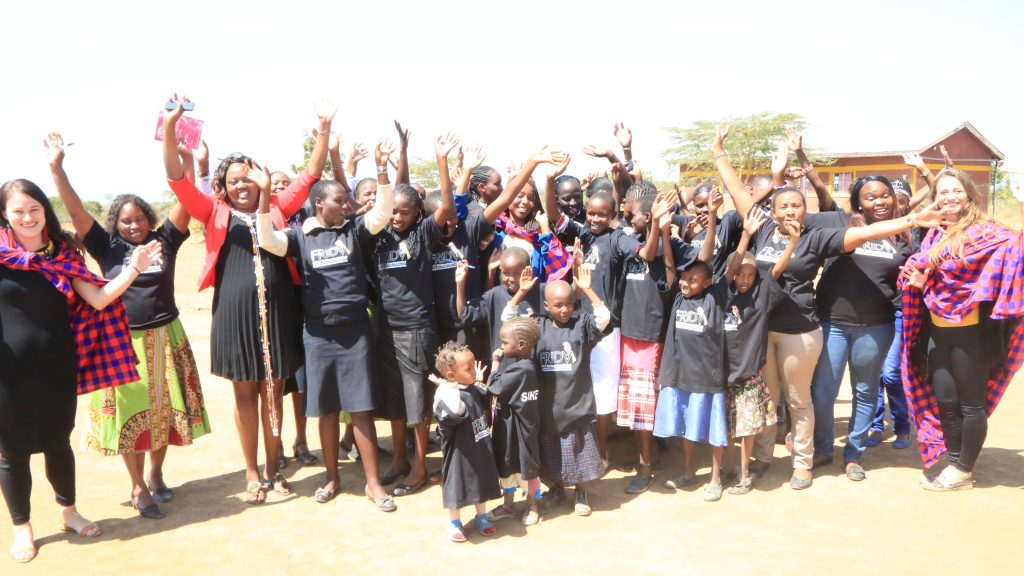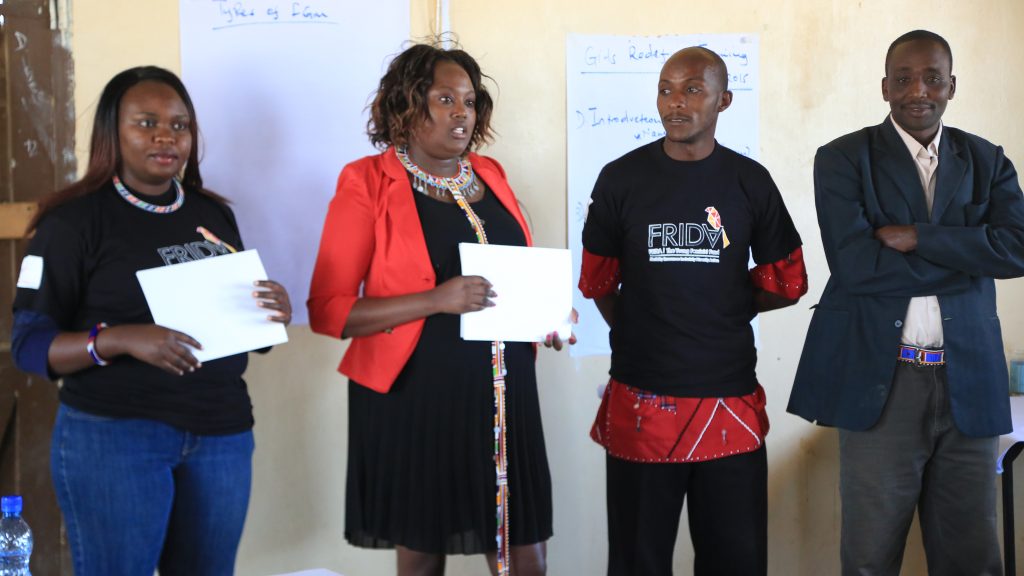FRIDA held its first ever regional convening for grantee partners in Sub-Saharan Africa (SSA) in Nairobi, Kenya from the 11th – 13th August 2015: an exciting and rare opportunity that brought together 9 of the 10 grantee groups in the region (all from different countries), with two participants from each group. Five of us from FRIDA, three staff members and two SAA advisors, with assistance from Akili Dada, conducted and organized the convening successfully.
Being quite new to FRIDA (it’s been just under 3 months!), having the opportunity to interact with, learn from and share knowledge with grantees, allowed for my better understanding of the work FRIDA does, the impact our funding has on grantees and their organizations as well as the work it enables them to do. The convening therefore provided evidence to not only support the organization’s theory of change and reinforced the importance of FRIDA’s values of Flexibility, Resources, Inclusivity, Diversity and Action, but also indicating the need to increase and direct more resources to support our ‘funding plus’ approach. Below are a few of the highlights, lessons learnt and ‘takeaways’ from our week in Kenya!
(short video of FRIDA’s week in Kenya to be shared soon!)
Learning about Grantee Groups
Having only read about the grantee partners and the work they do, the convening served as an opportunity to learn more about their work; why they do it, how they do it and their hopes and dreams for their groups. Despite the diverse focus areas; from advocacy for the protection of rights for sexual minority women (WHER, Nigeria), advocacy for the rights of female sex workers’ rights (Crested Crane Lighters, Uganda), anti-FGM campaigning (Girls Redefined, Kenya) and advocacy against early marriages (FOCESE, Malawi), the convening served as a platform for grantees to not only understand each others organizations and the context within which they work, but to also form relationships with like-minded individuals, as well as deepen their understanding and reflection on their own organizations.

Participants, members of Girls Redefined and FRIDA staff after an anti-FGM sensitization meeting in Marok, Kenya Picture credit: Ethan Liku
While learning about each organization and the impact they’re making within their communities served as the much needed inspiration one often needs when working in the world of social change, what really stood out was what connected several of the groups: the hostile environment within which they operate. The challenges and risks involved in their work, particularly as a response to the “cultural inappropriateness” or the illegality of advocating for certain rights, makes the work they do nothing short of being risky. It was their resilience in the face of the challenges and risks they face which solidified my already strong belief in the need to fund young feminist activism.
Capacity Building (Understanding Our Impact)

Girls Redefined staff & venue hosts (vice-principal & chairman of the school) welcoming participants to the sensitisation meeting in Narok, Kenya. Picture credit: Ethan Liku
The convening also served as an opportunity to strengthen grantees skills and strategies through sessions on monitoring & evaluation, project management, resource mobilization and self-care. The discussion on monitoring and evaluation focused on “Understanding Our Impact”; particularly addressing a question increasingly raised: ‘how do we measure social change?’. While the session was focused on sharing different approaches to doing so, it also aimed to change perceptions around measuring and sharing change and re-introducting M&E as a tool for learning and accountability. We also engaged in a participatory approach to developing indicators to measure FRIDA grantee partners collective impact. This approach is a part of FRIDA’s commitment to participatory methods in the work that we do. FRIDA also firmly believes that as experts of their reality they are best suited to determine how to assess the impact of their work.
Dialogues
Two separate dialogues were held during the convening; one around young women’s leadership and the other on funding landscape for young feminist activism.
The discussion around leadership focused on determining the barriers to young African women’s participation in decision-making processes and proposed ways in which these barriers can be overcome. While the discussion itself was insightful and led to deep reflection on young women’s leadership on the continent; the key ‘take away’ was the need for young women to have spaces such as the convening/dialogue session to discuss and develop collective solutions to issues affecting young women. The lack of dialogue within and between borders continues to hamper young women’s activism; it prohibits the likelihood of collective organizing and response to issues which affect young women in their own countries as well as their visibility and power to influence change at regional level. There is a need to strengthen the collective voice of young feminists.
“Young Women: Do not wait for an opportunity to lead change. It is never going to come.”
Alyse Nelson
The second dialogue was with donors (such as Mama Cash & Urgent Action Fund). The best part of engaging with the donors was the way they were able to share their perspectives as young feminists themselves apart from just a donor perspective. When both positions of solidarity were presented, the understanding on young feminist activism, of course, was strengthened. A key theme which repeatedly came up was around “good money”: in reference to the conflict between survival and principles, given the numerous conditionalities and/or restrictions that come with most funding which may not reflect the values of the organization or which dictate too much of program design/implementation/monitoring etc. The need to strengthen our other resources, particularly to harness our collective power was therefore re-emphasized, to then influence the narratives on funding in Africa and to learn to stand firm on one’s theory of change despite external pressures to change one’s approach.
We may be using old strategies BUT at a new moment!
Ruby, FRIDA
While it may not be possible to regularly meet with all grantee partners, it was a valuable experience at a personal level as a young feminist working to strengthen young feminist activism. I went back home with the hope that FRIDA’s approach in grant making, its funding plus model and its monitoring & evaluation continues to be relevant to the people it was formed to serve.
As observed and written by Boikanyo Modungwa